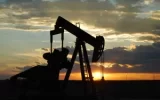Iran’s oil and gas is wasted in common fields

According to Energy Press, 28 common oil and gas fields are a treasure whose key is lost. Some experts believe that this key is in the hands of the mafia that benefits from this situation. Gas imbalances, electricity outages and excessive prices are the direct result of this imprudence.
The importance of joint fields is so great for Iran that 50% of the discovered gas reserves of the country are located in joint gas fields. However, according to what the Ministry of Oil announced, out of 28 common fields, 13 are abandoned and undeveloped; This strange neglect endangers the country’s energy future and shows the lack of proper planning in the field of energy.
Oil mafia and obstacles to the development of joint fields
In an interview with “Energy Press”, Saeed Saviz, an expert in the field of energy, emphasizes Iran’s backwardness in exploiting these joint fields, citing low investment and the lack of advanced technologies as the reasons for this backwardness.
According to him, Iran’s neighbors have succeeded in exploiting common fields by taking advantage of large contracts with international companies and using advanced technologies. On the other hand, Iran is lagging behind in this competition due to the lack of investment and lack of modern technologies.
This energy expert emphasized: Iran has no capital, no technology, and no will to develop joint fields! Some people, especially the Khosluts, even benefit from this situation and by creating obstacles, they block the way for foreign investment companies to enter, and this situation has made us fall behind not only Saudi Arabia, but even Iraq has overtaken us.
Contradiction of development of oil fields under sanctions
While officials emphasize the development of oil fields, some experts believe that the decision-makers have forgotten that oil cannot be sold easily under sanctions and warn that these decisions are like building a palace in the desert. Saeed Saviz, an expert in the field of energy, raised the question, “How can we manage the oil industry when we cannot sell the oil or receive the money?” It points to this great contradiction. According to him, in the current sanctions situation, this approach does not lead to development, because the money from the sale is blocked and does not return to the country, and the oil industry will still have its hands in the pockets of the National Development Fund.
Another challenge of Iran is border disputes in the sea. The maritime borders with Saudi Arabia are still in an aura of uncertainty. Legal and political complexities have turned the precise determination of common borders, especially in gas fields like Arash, into an unsolvable mystery, and this uncertainty can endanger national interests.
Can Iran win in the game of common fields?
The question that arises is whether Iran can go beyond its current position where it has become more of a spectator in the game of common fields.
Saviz says in this regard: We are not even on the path of development, for example, the diversionary drilling technology, as one of the key tools in the development of oil and gas fields, is the monopoly of advanced countries. Iran’s lack of access to this technology due to sanctions is a big obstacle to the development of the country’s oil and gas industry, on the other hand, the country itself does not have the ability to manufacture this tool.
Tags:oil
- Comments sent by you will be published after approval by site administrators.
- Comments that contain slander will not be published.
- Comments that are not in Persian or not related to the news will not be published.

Comments
Total comments : 0 Awaiting review : 0 Date: 0